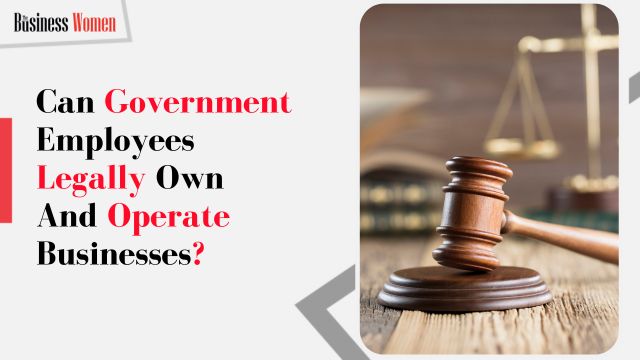Amplify Your Leadership Voice Worldwide
Join 7,000+ industry leaders sharing insights with millions of professionals globally
Join 7,000+ industry leaders sharing insights with millions of professionals globally

In business, entities are formed with distinct identities, yet they consist of individuals pursuing common profit-driven objectives. This article delves into the question: Can a government employee own a business? Exploring the complexities of this topic, we examine the legalities, restrictions, and ethical considerations associated with government employees engaging in private business ventures.
The functioning of businesses involves distinct roles of control, management, and shareholding. This division of powers can lead to significant disparities between decision-makers and stakeholders, potentially harming shareholders’ interests. To counterbalance this, government employees’ participation in private companies can foster equilibrium between management and shareholders.
In India, government employees are legally prohibited from owning businesses directly. However, this prohibition doesn’t prevent them from pursuing business endeavours indirectly, such as establishing firms under the names of their spouses or children and overseeing their operations. Those aiming to embark on private ventures while maintaining government employment must adhere to specific regulations and ethical guidelines.
Government employees planning to start side businesses must obtain permission from an ethics committee before commencing such ventures. Ensuring a clear boundary between official government duties and private business activities is crucial.
Government employees can become partners or directors in private firms under certain conditions. They can serve as sleeping partners or non-executive directors but are restricted from holding whole-time or part-time director positions. Approval from the relevant government department is often required for such appointments.
The All India Services (Conduct) Rules, 1968, are designed to guide the behaviour of government employees. Section 13 of these rules explicitly states that government employees must seek prior government approval before engaging in business activities or taking on other employment opportunities.
The prohibition on government employees becoming directors of private firms stems from concerns about dual remuneration, potential misuse of government power, and conflicts of interest. To maintain transparency and ethical standards, government employees are restricted from leveraging their official positions to gain advantages in private enterprises.
When contemplating whether a government employee can own a business, factors like conflicts of interest and the appearance of impropriety must be carefully considered. Employees must ensure that their private business activities do not interfere with their official duties or create any perception of impropriety.
Prior to launching a business venture, government employees should obtain the necessary clearances from the appropriate government agencies. Transparent communication about their intention to continue government service while pursuing business activities is essential to avoid misunderstandings and conflicts.
The relationship between government employment and private business ownership is intricate, defined by legal boundaries, ethical obligations, and considerations of fairness. Understanding the regulations and adhering to ethical standards is crucial for government employees seeking to strike a balance between their official roles and entrepreneurial aspirations.
Join industry leaders who have shared their insights with millions of professionals globally.